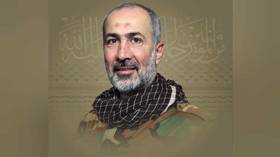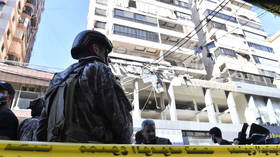Hezbollah confirms death of drone chief

The head of Hezbollah’s drone and cruise missile command has been killed in an Israeli attack on Beirut, the Lebanon-based militant group has confirmed in a post on Telegram on Friday.
The Israel Defence Forces (IDF) claimed on Thursday to have killed Mohammad Srour, also known as Abu Saleh, in a strike on an apartment block in the southern suburb of Beirut.
“Fighter jets attacked Beirut and killed Mohammad Hussein Srour,” the IDF said in a post on X (formerly Twitter).
Lebanon’s National News Agency has reported that “three missiles” had targeted “a residential apartment in a ten-story building.”
In an update on Telegram on Friday, Hezbollah confirmed the death of Srour, 51, who joined the militant group in 1986 and “led military operations for the Islamic resistance’s air force on the Lebanese support front.”
He was reportedly in charge of Hezbollah’s drone, cruise missile, and air-defense branch. According to the IDF, he “directed and commanded” many drone attacks aimed at Israel.
Local media reported that it was the fourth attack in a week targeting Hezbollah officials in a densely populated area of southern Beirut. Two people were killed in the strike and 15 wounded, “including a woman in critical condition,” according to Lebanon’s Health Ministry.
Israel has killed at least three top Hezbollah commanders since last Friday, including Ibrahim Aqil, Ahmed Wahbi, and Ibrahim Qubaisi.
The assassination of Hezbollah’s head of aerial command marked a significant escalation in the ongoing Israel-Lebanon conflict.
Israeli Prime Minister Benjamin Netanyahu pledged to maintain large-scale military operations against Hezbollah on Thursday, rejecting mounting international calls for a ceasefire.
Earlier this week, the US and France proposed a 21-day ceasefire deal between Israel and Hezbollah to make way for broader negotiations. While Netanyahu’s office said he was yet to respond to the initiative, the Israeli prime minister instructed troops to continue “fighting with full force” against Lebanon.
Netanyahu’s firm stance has dented the prospects of a ceasefire, despite efforts by international officials advocating for a temporary halt in the violence to prevent the conflict from escalating into a full-scale war.













